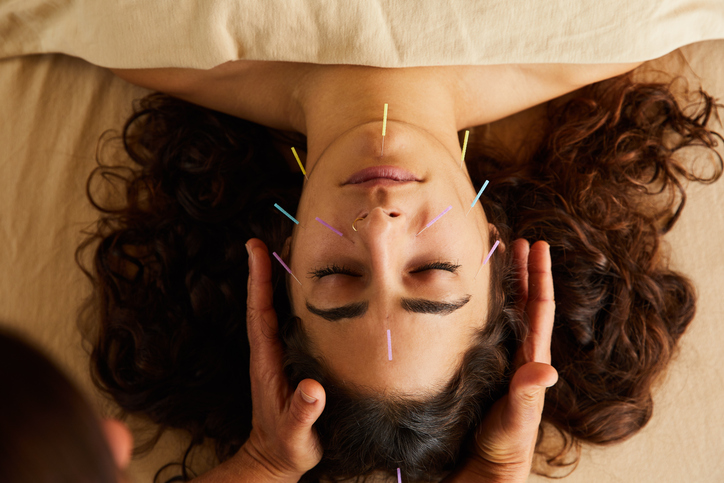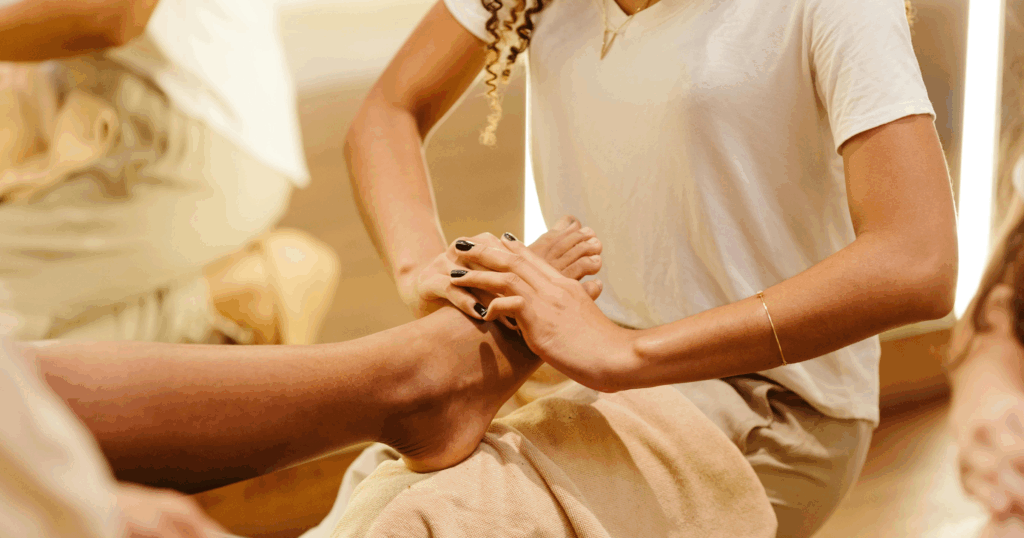Top 10 Benefits of Reflexology: Unlock Better Health, Stress Relief & Natural Healing
Imagine a therapy that requires nothing more than skilled hands and your willingness to relax, yet has the potential to ripple through your entire body, soothing not only aches but also the burdens of modern life. Reflexology is precisely this kind of therapy-a bridge between ancient healing and contemporary wellness. Its roots stretch back to the medical papyri of Egypt and the holistic philosophies of Traditional Chinese Medicine, both of which recognized the feet, hands, and ears as microcosms of the body.
Today, reflexology is enjoying a renaissance. Scientific journals brim with new studies, and wellness centers around the world offer reflexology alongside acupuncture and massage. This surge in popularity is not just a trend; it reflects a growing recognition of the mind-body connection and the desire for therapies that honor the whole person. Reflexology’s top benefits-stress relief, improved circulation, pain management, immune support, and more-are only the beginning.
Top 10 Benefits of Reflexology: Unlock Better Health, Stress Relief & Natural Healing
Imagine a therapy that requires nothing more than skilled hands and your willingness to relax, yet has the potential to ripple through your entire body, soothing not only aches but also the burdens of modern life. Reflexology is precisely this kind of therapy-a bridge between ancient healing and contemporary wellness. Its roots stretch back to the medical papyri of Egypt and the holistic philosophies of Traditional Chinese Medicine, both of which recognized the feet, hands, and ears as microcosms of the body.
Today, reflexology is enjoying a renaissance. Scientific journals brim with new studies, and wellness centers around the world offer reflexology alongside acupuncture and massage. This surge in popularity is not just a trend; it reflects a growing recognition of the mind-body connection and the desire for therapies that honor the whole person. Reflexology’s top benefits-stress relief, improved circulation, pain management, immune support, and more-are only the beginning.
What Is Reflexology?
Reflexology is more than a foot rub, though it may feel just as comforting. It is a precise therapeutic method that involves applying pressure to specific points-reflex zones-on the feet, hands, and sometimes ears. Each reflex point corresponds to a different organ or system in the body, based on detailed maps developed over centuries.
The origins of reflexology are as fascinating as the therapy itself. Ancient Chinese texts describe pressure therapies that align with the meridian system, while Egyptian tomb paintings depict healers working on hands and feet. Modern reflexology, as practiced at ACA Acupuncture & Wellness, blends these traditions with contemporary anatomical knowledge, creating a holistic, patient-centered approach.
During a session, you can expect more than relaxation. We begin by discussing your health goals, then tailor the session to address your specific needs-be it chronic pain, digestive issues, or simply the desire to unwind. Unlike a standard foot massage, which focuses on muscles and soft tissue, reflexology targets the body’s internal systems through nerve-rich zones, aiming for systemic balance and harmony.
How Reflexology Works
The mechanisms behind reflexology are both elegant and complex. At its core, the therapy relies on the concept that the body is mirrored in the feet and hands. By stimulating these reflex points, we can influence corresponding organs and systems, encouraging the body’s innate healing response.
Several theories seek to explain reflexology’s effects. One suggests that pressure on reflex points sends calming signals through the nervous system, interrupting pain pathways and reducing stress responses. Another posits that reflexology enhances energy flow-known as “qi” in Chinese medicine-restoring balance where there is stagnation or deficiency. Emerging research even hints at changes in brain activity and autonomic function, though the exact biological pathways remain a subject of ongoing investigation.
Top 10 Benefits of Reflexology
1. Stress Relief and Deep Relaxation
Few therapies can rival reflexology’s ability to melt away tension. The gentle, rhythmic pressure calms the nervous system, lowers cortisol, and fosters a sense of safety and peace. For many of our patients, the effects linger long after the session ends-better moods, fewer anxious thoughts, and a renewed sense of control over life’s demands.
2. Improved Blood Circulation
Healthy circulation is the foundation of vitality. Reflexology stimulates microcirculation, enhancing the delivery of oxygen and nutrients to tissues while aiding in the removal of metabolic waste. This is especially valuable for those with sedentary lifestyles or circulatory challenges, as improved blood flow supports healing, mobility, and resilience.
3. Pain Reduction and Management
Chronic pain can significantly diminish quality of life, but reflexology presents a gentle alternative or complement to conventional medication. By stimulating specific reflex zones, the body is encouraged to release endorphins-natural painkillers-while simultaneously interrupting pain signals at their source. Many individuals report relief from headaches, migraines, arthritis, plantar fasciitis, and even post-surgical discomfort through regular reflexology sessions.
4. Boosted Immune System
A robust immune system is your best defense against illness. Reflexology’s influence on lymphatic flow and detoxification may help reduce the frequency of infections and support those living with chronic conditions. Some studies suggest reflexology can modulate immune markers, though more research is needed to fully understand these effects.
5. Enhanced Nerve Function
Nerve endings in the feet and hands are among the most sensitive in the body. Over time, especially with age or certain medical conditions, these nerves can become less responsive. Reflexology “awakens” these pathways, promoting better nerve function and potentially easing symptoms of neuropathy.
6. Better Sleep Quality
Insomnia and restless nights are all too common, but reflexology offers a natural path to restorative sleep. By calming the mind and balancing the autonomic nervous system, reflexology helps regulate sleep cycles and reduce nighttime awakenings. Patients often describe drifting off more easily and waking up refreshed.
7. Improved Digestion and Gut Health
Digestive discomfort can be both a cause and a consequence of stress. Reflexology targets reflex points linked to the stomach, intestines, and liver, supporting smoother digestion and relief from bloating, constipation, and indigestion. Some emerging research even explores reflexology’s impact on the gut-brain axis, a frontier we are eager to see unfold.
8. Hormonal Balance
Hormones orchestrate everything from mood to metabolism. Reflexology’s gentle stimulation of endocrine-related reflex points may help regulate cycles, ease menstrual discomfort, and support women navigating menopause. While not a substitute for medical care, it can be a valuable ally in holistic hormone management.
9. Increased Energy and Vitality
Fatigue can sap joy from daily life. Reflexology, by unblocking energy pathways and supporting metabolic processes, often leaves our patients feeling lighter, brighter, and more capable of meeting life’s demands. This renewed vitality is not just physical-it’s mental and emotional as well.
10. Enhanced Mental Clarity and Focus
The mind-body connection is at the heart of reflexology. As tension and pain subside, many find their thoughts clearer and their focus sharper. Reflexology may also reduce mental fatigue, making it a valuable tool for students, professionals, and anyone facing cognitive demands.
Beyond the Basics: Uncommon and Emerging Benefits
While the above benefits are well-documented, reflexology’s reach may extend even further. Recent studies suggest intriguing possibilities:
- Support for Holistic Wellness and Self-Healing: Reflexology encourages the body’s self-regulatory mechanisms, fostering a state where healing can occur more readily.
- Foot Health and Prevention: Regular reflexology can detect subtle changes in foot health, potentially preventing issues before they escalate.
- Aid in Recovery: Post-injury or post-surgery, reflexology may support tissue repair and reduce recovery times, though more robust studies are needed.
- Emotional Balance: The act of caring touch and focused attention can be profoundly grounding, supporting emotional resilience during times of upheaval.
Who Can Benefit from Reflexology?
Reflexology is remarkably versatile. Adults seeking stress relief, seniors managing chronic conditions, athletes recovering from exertion, and even those navigating major life changes can all find value in this therapy. However, it’s not for everyone-certain conditions, such as severe circulatory disorders or infections, may require caution or alternative approaches. At ACA Acupuncture & Wellness, we always conduct thorough assessments to ensure reflexology is safe and appropriate for each individual.
Scientific Evidence and Research
The scientific landscape for reflexology is evolving. While many studies highlight benefits such as reduced pain, anxiety, and fatigue, the quality of evidence varies, and some reviews point to methodological limitations. For example, a recent systematic review found low-certainty evidence that reflexology may improve sleep quality and reduce fatigue in some chronic conditions, but results for pain, emotional health, and overall quality of life remain inconclusive.
What excites us most are the emerging research directions: measuring biomarkers like stress hormones, using advanced imaging to observe brain changes, and exploring reflexology’s impact on the gut microbiome. These frontiers hold promise for deepening our understanding and expanding reflexology’s role in integrative medicine.
How to Incorporate Reflexology into Your Wellness Routine
Reflexology is most effective when woven into a broader self-care plan. Here are some ways to make it part of your life:
- Home Practice: Simple techniques, such as rolling a tennis ball under your foot or gently massaging your hands, can offer daily stress relief.
- Professional Sessions: Look for certified reflexologists with a background in holistic health. At ACA Acupuncture & Wellness, our practitioners blend reflexology with Traditional Chinese Medicine for a truly integrative experience.
- Consistency Matters: While even a single session can be beneficial, regular reflexology-weekly or biweekly-yields the best results.
- Listen to Your Body: Reflexology is a partnership. Share your experiences with your practitioner, and adjust your routine as needed.
Why Reflexology Is a Powerful Addition to Your Wellness Journey
Reflexology is more than a therapy-it is an invitation to reconnect with your body’s innate wisdom. Whether you seek relief from pain, a respite from stress, or simply a moment of peace, reflexology offers a gentle, compassionate path forward. At ACA Acupuncture & Wellness, we are honored to walk this path with you, blending ancient tradition with modern insight to support your journey toward balance and well-being. If you are ready to experience the transformative power of reflexology, we invite you to join us-your feet (and your whole self) will thank you.
Source:
Embong, N. H., Soh, Y. C., Ming, L. C., & Wong, T. W. (2015). Revisiting reflexology: Concept, evidence, current practice, and practitioner training. Journal of Traditional and Complementary Medicine, 5(4), 197–206. https://doi.org/10.1016/j.jtcme.2015.08.008
Toledo, T. G., Freire, L. a. M., Reis, L. M. D., Terra, A. M. S. V., & Santos, A. T. S. (2022). Effect of Foot Reflexology on Muscle Electrical Activity, Pressure, Plantar Distribution, and Body Sway in Patients with Type 2 Diabetes Mellitus: A Pilot Randomized Controlled Trial. International Journal of Environmental Research and Public Health, 19(21), 14547. https://doi.org/10.3390/ijerph192114547
Frequently Asked Questions
What benefits do you get from reflexology?
Reflexology can promote deep relaxation, reduce stress and anxiety, and help alleviate various types of pain including headaches, arthritis, and post-surgical discomfort. It may also improve blood circulation, boost immune function, enhance nerve activity, support hormonal balance, and improve sleep quality. Many patients report increased energy, mental clarity, and overall well-being after sessions.
Does reflexology get rid of toxins?
While reflexology is often said to aid detoxification by stimulating lymphatic flow and circulation, scientific evidence directly proving toxin removal is limited. However, by promoting relaxation and improving circulation, reflexology supports the body’s natural detox processes and immune system function.
How often should you get reflexology?
The ideal frequency depends on your goals and current health. For general wellness and stress relief, monthly or biweekly sessions are common. If you’re addressing a specific issue like pain, anxiety, or recovery, weekly sessions may be more beneficial at first, tapering to maintenance visits once you notice improvement. Some situations, such as acute stress or late pregnancy, may call for more frequent sessions (up to two or three times a week for a short period).
What happens to the body after reflexology?
After a session, many people experience reduced muscle tension, lowered stress hormone levels, improved circulation, and a sense of calm and mental clarity. Some notice relief from pain or discomfort, better sleep, and enhanced mood. Reflexology may also stimulate nerve endings and improve organ function through reflex zones.
What can a reflexologist tell from your feet?
A reflexologist can often detect areas of tension, sensitivity, or imbalance in reflex points that correspond to different organs or systems. This can provide clues about underlying health issues or stress patterns. While not diagnostic, these observations help tailor treatment to support overall wellness.
Does reflexology actually work?
Research indicates reflexology can be effective in reducing pain, anxiety, and improving relaxation and sleep quality. Though many studies have limitations and more high-quality research is needed, reflexology is widely regarded as a valuable complementary therapy that supports symptom relief and enhances quality of life.
Contact ACA Acupuncture & Wellness
Get in Touch
Newsletter Sign Up
LOCATIONS
MANHATTAN
QUEENS
NEW JERSEY
CALIFORNIA

ACA Franchise Opportunities
The over $4 billion US acupuncture market offers a great opportunity with over 10% annual growth rates and a continuing flow of new patients interested in the benefits of acupuncture.






